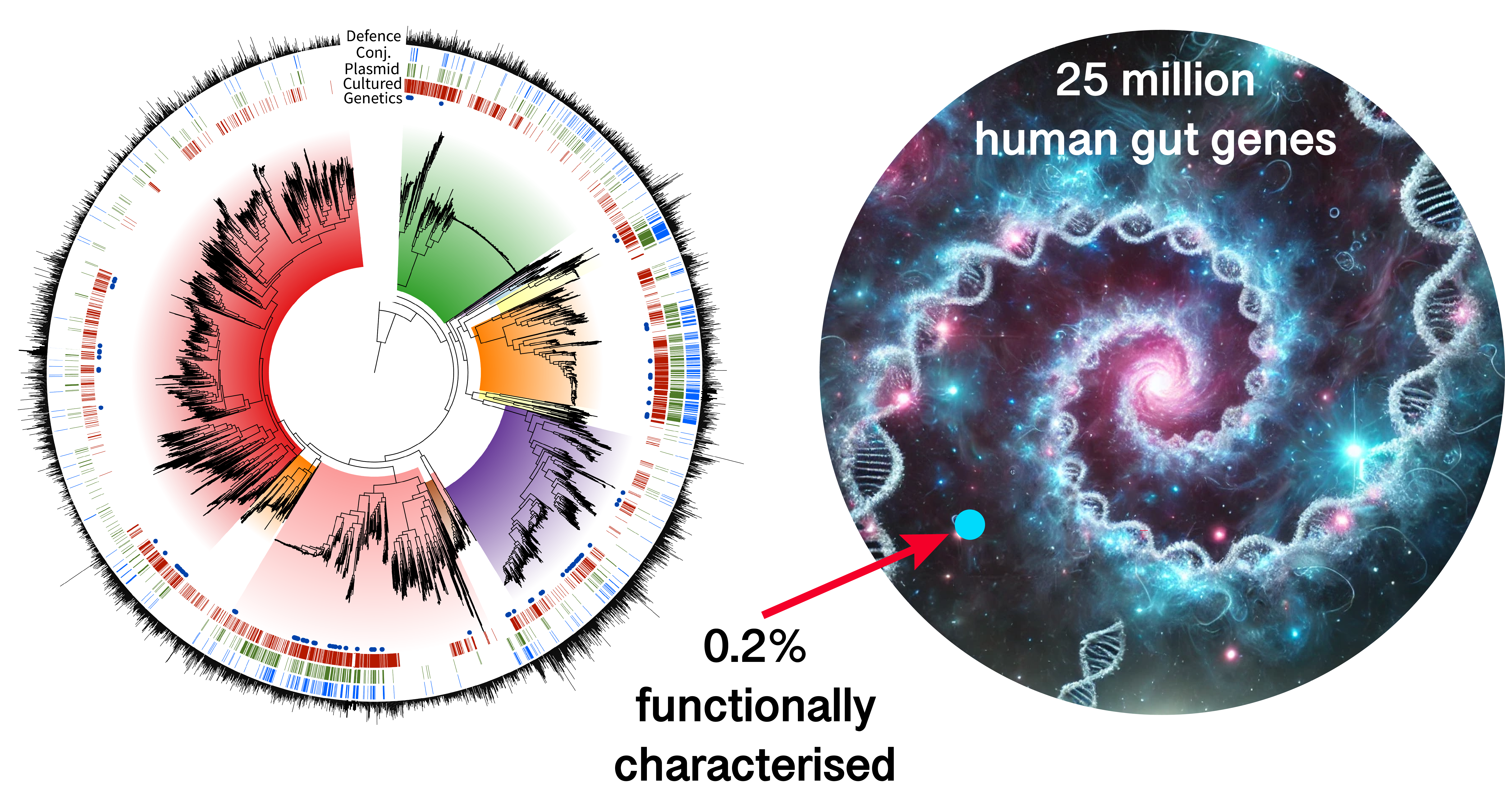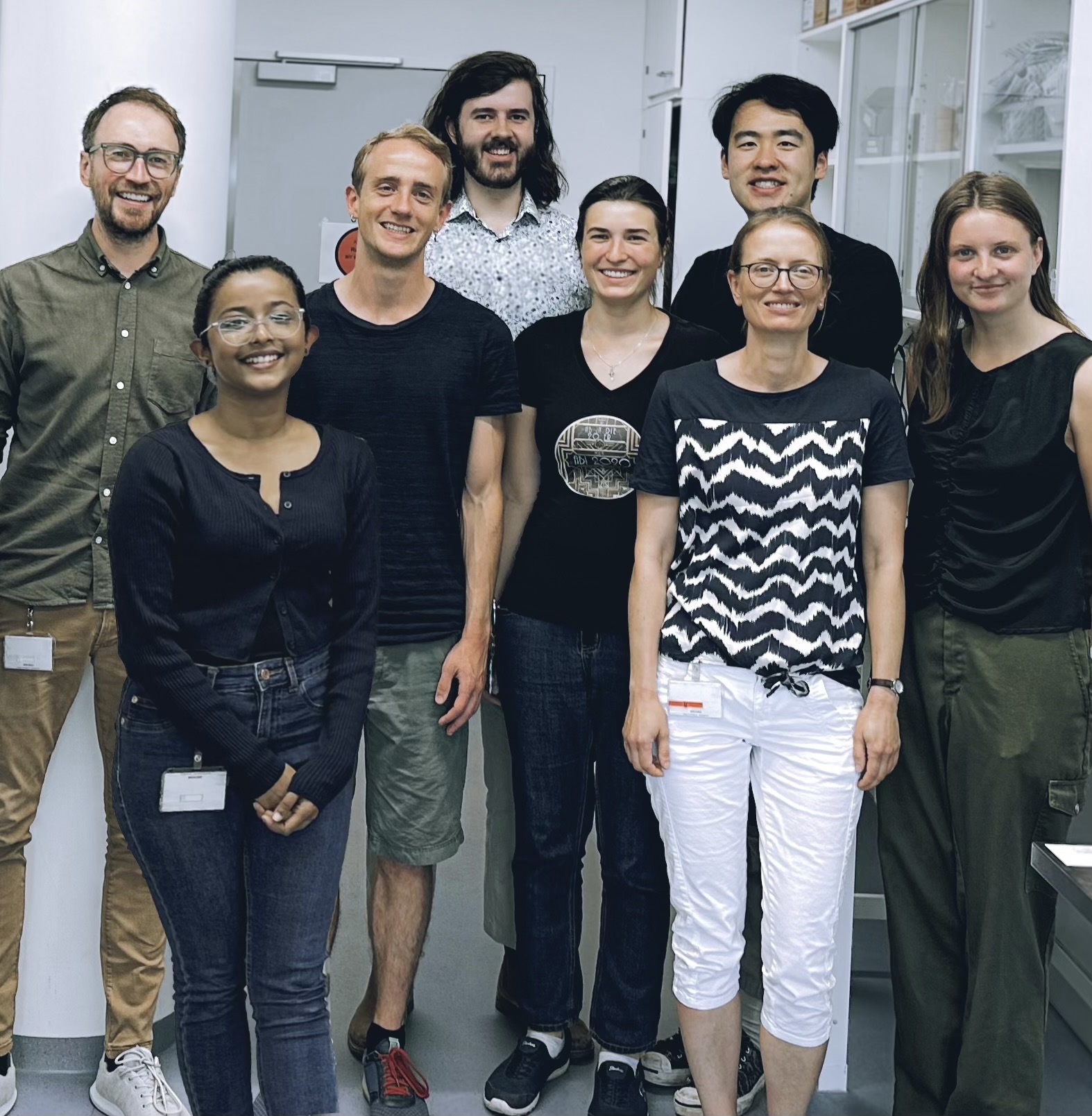
What we do
The community of microorganisms within the human gastrointestinal tract is one of the most diverse ecosystems known, yet we currently have limited tools to unravel its intrinsic complexity. Next-generation sequencing approaches have been invaluable for the characterisation of gut microbial distribution, abundance, and evolution, but elucidating the mechanistic basis for these dynamics requires an ability to perturb the system through manipulation and testing. By developing novel microbiome engineering techniques, we are genetically reprogramming diverse, non-model organisms associated with the human gut to understand both their ecological niche and the interactions that drive community function.
Microbiome Engineering Figure: Over 6,000 unique species have been identified in the human gut, forming a highly diverse microbial tree of life. Together, these species encode more than 25 million genes, yet only 0.2% of them have been functionally characterized. As a result, much of the genetic content of the human gut remains unexplored and beyond the reach of current genetic tools. Developing new methods to access this genetic “dark matter” is essential to uncover the functional mechanisms driving gut dynamics.

News
2024: The Group will be featured in a documentary on microbiome-immune interactions to be aired on Südwestrundfunk (SWR) in November (Germany).
2024: Together with
Bastian Molitor at the University of Tübingen, James was awarded part of a worldwide collaborative grant by the Global Methane Hub to develop
Genetic Toolkits for Rumen Bacteria and Methanogens to Enable Methane Mitigation Strategies. About us
We are a group in Ruth Ley's Department of Microbiome Science at Max Planck Institute for Biology, Tübingen, Germany.





